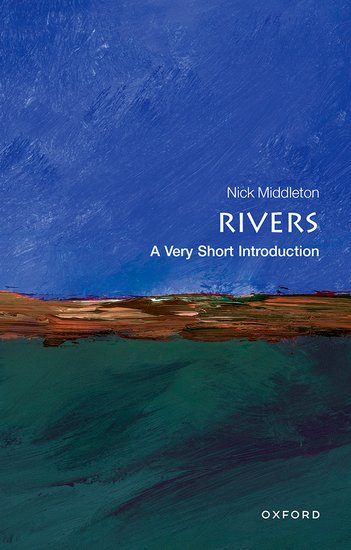Home >
A Very Short Introduction >
Probability (Nature)
A Very Short Introduction | Nature
Probability
ISBN: 9780199588671
Series: A Very Short Introduction
Probability (Nature)
A Very Short Introduction Probability (Nature) Media > Books > Non-Fiction > Education Books Expect Delays of Up to 4 Weeks| Order Below |
ISBN
9780199588671 (10-digit ISBN: 0199588678)
- Description
- Key Features
- Series Description
- Table of Contents
- Explores ideas of probability and the different philosophical approaches to it
- Provides a brief account of the history of development of probability theory
- Considers the work of some of the big players; from Galileo and Pascal to Bayes, Laplace, Poisson, and Markov
- Discusses a wide range of applications of probability theory in science, economics, and a variety of other contexts
Making good decisions under conditions of uncertainty - which is the norm - requires a sound appreciation of the way random chance works. As analysis and modelling of most aspects of the world, and all measurement, are necessarily imprecise and involve uncertainties of varying degrees, the understanding and management of probabilities is central to much work in the sciences and economics.
In this Very Short Introduction, John Haigh introduces the ideas of probability and different philosophical approaches to probability, and gives a brief account of the history of development of probability theory, from Galileo and Pascal to Bayes, Laplace, Poisson, and Markov. He describes the basic probability distributions, and goes on to discuss a wide range of applications in science, economics, and a variety of other contexts such as games and betting. He concludes with an intriguing discussion of coincidences and some curious paradoxes.
Oxford's Very Short Introductions series offers concise and original introductions to a wide range of subjects--from Islam to Sociology, Politics to Classics, Literary Theory to History, and Archaeology to the Bible.
Not simply a textbook of definitions, each volume in this series provides trenchant and provocative--yet always balanced and complete--discussions of the central issues in a given discipline or field. Every Very Short Introduction gives a readable evolution of the subject in question, demonstrating how the subject has developed and how it has influenced society. Eventually, the series will encompass every major academic discipline, offering all students an accessible and abundant reference library.
Whatever the area of study that one deems important or appealing, whatever the topic that fascinates the general reader, the Very Short Introductions series has a handy and affordable guide that will likely prove indispensable.
Please note: As this series is not ELT material, these titles are not subject to discount.
1: Fundamentals
2: The workings of probability
3: Historical sketch
4: Chance experiments
5: Making sense of probabilities
6: Games people play
7: Applications in science and operations research
8: Other applications
9: Curiosities and dilemmas
Appendix - Answers to questions posed
Making good decisions under conditions of uncertainty - which is the norm - requires a sound appreciation of the way random chance works. As analysis and modelling of most aspects of the world, and all measurement, are necessarily imprecise and involve uncertainties of varying degrees, the understanding and management of probabilities is central to much work in the sciences and economics.
In this Very Short Introduction, John Haigh introduces the ideas of probability and different philosophical approaches to probability, and gives a brief account of the history of development of probability theory, from Galileo and Pascal to Bayes, Laplace, Poisson, and Markov. He describes the basic probability distributions, and goes on to discuss a wide range of applications in science, economics, and a variety of other contexts such as games and betting. He concludes with an intriguing discussion of coincidences and some curious paradoxes.
Key Features
- Explores ideas of probability and the different philosophical approaches to it
- Provides a brief account of the history of development of probability theory
- Considers the work of some of the big players; from Galileo and Pascal to Bayes, Laplace, Poisson, and Markov
- Discusses a wide range of applications of probability theory in science, economics, and a variety of other contexts
Series Description
Oxford's Very Short Introductions series offers concise and original introductions to a wide range of subjects--from Islam to Sociology, Politics to Classics, Literary Theory to History, and Archaeology to the Bible.
Not simply a textbook of definitions, each volume in this series provides trenchant and provocative--yet always balanced and complete--discussions of the central issues in a given discipline or field. Every Very Short Introduction gives a readable evolution of the subject in question, demonstrating how the subject has developed and how it has influenced society. Eventually, the series will encompass every major academic discipline, offering all students an accessible and abundant reference library.
Whatever the area of study that one deems important or appealing, whatever the topic that fascinates the general reader, the Very Short Introductions series has a handy and affordable guide that will likely prove indispensable.
Please note: As this series is not ELT material, these titles are not subject to discount.
EASY ORDER FORM
PRICES LISTED INCLUDE CONSUMPTION TAX
Price Before Tax:
¥1,790


